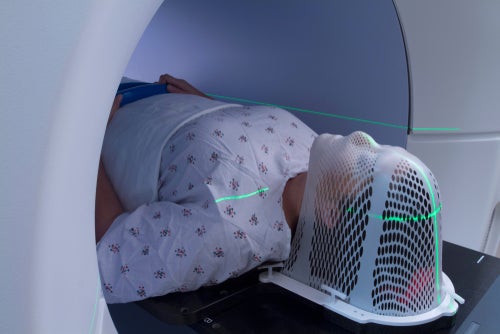
Callidatas Therapeutics has released interim data from its proof-of-concept Phase II trial in patients with squamous cell carcinoma of the head and neck (SCCHN) with setanaxib, its NOX 1 and 4 inhibitor candidate.
SCCHN occurs in the outermost surface of the skin or certain tissues within the head and neck region, including the throat, mouth, sinuses, and nose. Squamous cell carcinoma represents 90% of all head and neck cancers.

Discover B2B Marketing That Performs
Combine business intelligence and editorial excellence to reach engaged professionals across 36 leading media platforms.
The data shows encouraging results for progression-free survival (PFS) and supports the drug’s presumed anti-fibrotic mode of action.
The Phase II trial (NCT05323656) included a dataset of 20 patients with recurrent or metastatic SCCHN. Of these, 16 patients had evaluable tumour size and PFS-related results. A total of 12 patients had tumour biopsies before and after treatment with biomarker data, including transcriptomic analysis and pathology markers such as SMA, Foxp3 regulatory T cells and PDL-1 CPS.
It was advised that inferences from the analysis be treated with caution due to the small sample size and heterogeneity in the patient population.
The transcriptomic analysis showed that the two top pathways impacted by the treatment were fibrosis-related signalling pathways, providing support for the presumed mode of action relating to the modulation of activated fibroblasts.

US Tariffs are shifting - will you react or anticipate?
Don’t let policy changes catch you off guard. Stay proactive with real-time data and expert analysis.
By GlobalDataIncreased immunological activity was observed in patients treated with setanaxib, with beneficial changes to Foxp3 and PDL-1 CPS. It was not possible to conclude the drug’s impact on SMA reduction due to the small sample size.
Seven of the 16 evaluable patients were progression-free with either stable disease or partial response. Six were in the setanaxib arm and one was in the placebo arm. Six of the seven progression-free patients were still on the study drug at the time of the data read out, with the longest period on the drug being reported as 21 weeks.
Callidatas Therapeutics CEO Renée Aguiar-Lucander said: “Based on the encouraging clinical and transcriptomic results, data clearly support the continuation of the trial, which will read out on tumour size and progression-free survival in the full trial population next year.”
“Also, it is interesting that the transcriptomic results clearly pointed to a beneficial impact on two fibrosis-related signalling pathways, supporting the presumed mode of action, as well as our pipeline programmes. We are excited about the potential of setanaxib in disease areas where today treatment options are limited.”
According to GlobalData, the HNSCC market size for the 15 markets was $1.9bn in 2021.





